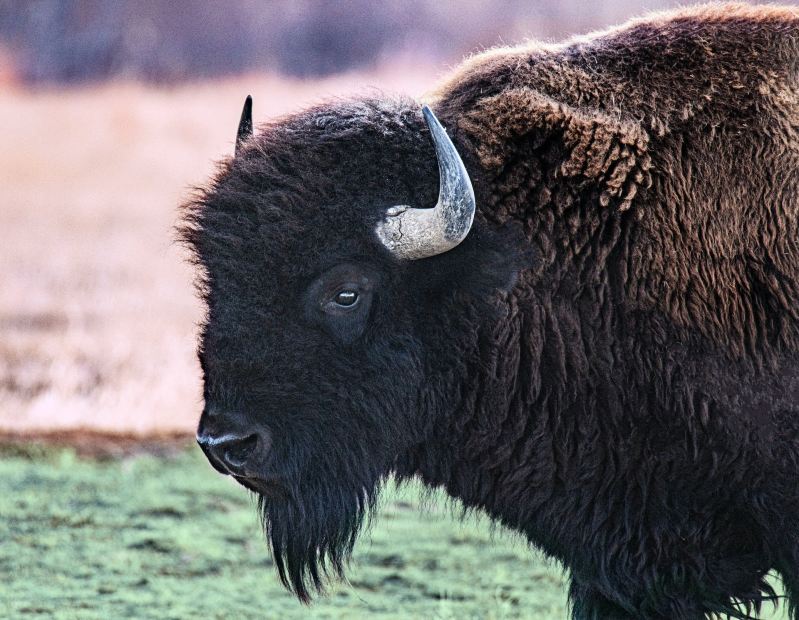
Elimination diets offer a helpful way to hone in on which foods may be causing symptoms of common conditions such as IBS or leaky gut syndrome; popular elimination diets, such as the FODMAP diet, require a person to eliminate specific foods from the diet in order to determine if a food is contributing to symptoms.
The newest health trend, the Lion Diet, takes a similar approach which includes a meat-only diet, eliminating foods and ingredients that may cause gastrointestinal distress and, thus, uncomfortable symptoms. But what exactly is the Lion Diet, and is it something you should try? Below, we’ll explore the origins behind this newest meat-eating trend and its functionality.

What is the Lion Diet?
In its simplest form, the Lion Diet consists only of ruminant animal meat (cattle, sheep, buffalo, etc.), water, and salt. We totally get it. This sounds — and is — restrictive. So what’s the theory behind it?
The goal of this diet is to allow the gut lining to heal. Since meat contains a high amount of essential nutrients, it can easily be absorbed in the small intestine without causing gastrointestinal distress. By eliminating plants, which often contain pesticides known as lectins, proponents of the Lion Diet say the body’s immune system and gut can heal itself.
As your body adapts to the Lion Diet, you may also experience some side effects – typically those associated with the keto flu. Given that the Lion Diet consists only of fat and protein, your body will transition into a ketogenic state, switching from running on carbs for energy to running on ketones produced as a by-product of the breakdown of fat. Symptoms of the keto flu often quickly subside as your body adjusts.
As with all elimination diets, the goal is to eventually reintroduce foods to figure out the items you should avoid in the future. Through a slow introduction process, people can begin to identify which foods may trigger symptoms for them and which foods are “safe” foods. The reintroduction phase does not begin until at least three months on a strict Lion Diet, which is designed to allow the gut lining to heal.

Who created the Lion Diet?
Mikhaila Peterson created the Lion Diet after struggling with chronic health issues since she was a child. After being diagnosed with several conditions, such as rheumatoid arthritis and serious depression, she sought a wholesome diet that did not worsen her body’s inflammation. She claims she was able to improve her health with these changes.

Lion diet vs. carnivore diet
The Lion Diet is similar to the carnivore diet; however, it is more restrictive. The popular carnivore diet is a meat-focused diet, but some variations of the diet allow other animal-based products to be consumed, such as eggs and dairy products. Unlike the Lion Diet, a carnivore diet allows non-ruminant meat to be consumed, such as poultry, as well as fish and seafood.
A carnivore diet may allow for spices and seasonings to be consumed too, as well as coffee and tea. The Lion Diet, however, does not allow for anything but meat, salt, and water. This is because some people who are ultra-sensitive to plant products may have symptoms even from spices and herbs.

Lion Diet meal plan
A Lion Diet meal plan is pretty simple, given its restrictive nature. Many people on this diet often pair it with intermittent fasting protocols, which means they may only be eating one or two meals per day. Each meal may consist of a ruminant animal (lamb, goat, bison, beef, and venison are popular choices), salt, and water. The food preparation can vary, but does not include any use of seasonings, spices, sauces, or cooking oils. Lion Diet meal plans often include basic meats, such as ribeye steak or a hamburger patty.
The Lion Diet avoids all other food groups, which means no vegetables, fruit, starches, seeds, grains, or legumes. As such, for those on the Lion Diet, this can make dining out and attending social functions difficult to do.

Should you give the Lion Diet a try?
People on the internet have claimed the Lion Diet has helped them transform their health, eliminating and improving symptoms such as acne, eczema, autoimmune conditions, and more. But what does science say?
There have not been any long-term studies that cover the Lion Diet and its benefits or limitations. Red meat and salt have, however, been known to exacerbate conditions like rheumatoid arthritis, according to studies.
If you wish to give the Lion Diet a try, it’s a good idea to speak to a healthcare professional who can help you determine if an elimination diet is right for you and provide guidance as you eliminate foods from your diet.
So should you try it? Until further research is done, your doctor can likely help you find a diet plan that is right for you, less restrictive, and currently evidence-based.



